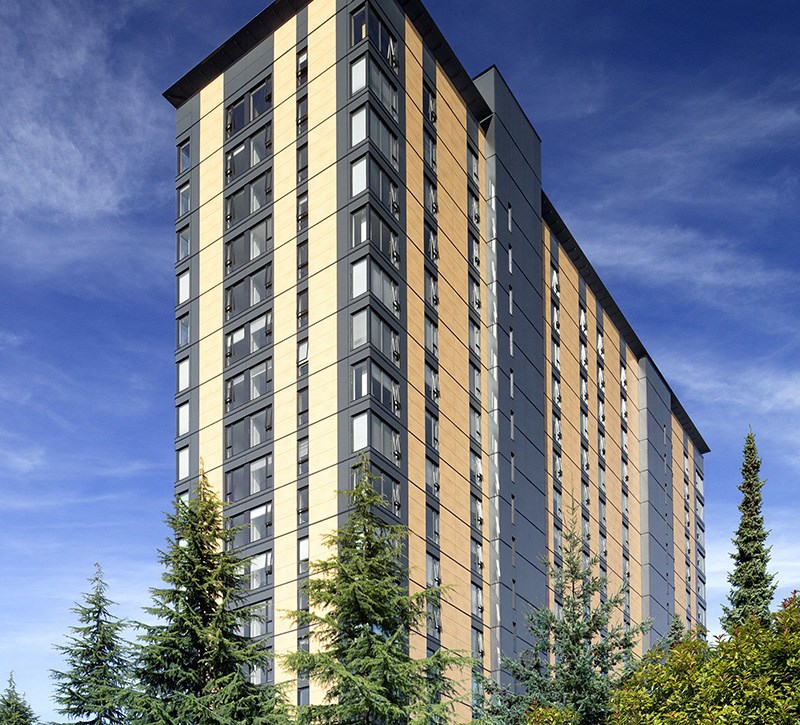A Port Moody councillor doesn’t want any more concrete high-rises to be constructed in the city.
Instead, Coun. Steve Milani wants all future construction in the city that’s more than six storeys to be built of mass timber.
In a report to be considered by council at its meeting Tuesday, Milani said buildings constructed of mass timber, or five-ply cross-laminated timber, are more sustainable and leave a smaller carbon footprint than traditional concrete construction. He said banning concrete high-rises would be in line with the city’s climate action plan that includes a provision to cut the carbon content of construction projects by 40% by 2030.
“Engineered wood carries much less of an environmental footprint than concrete,” Milani said in his report, adding concrete construction is responsible for up to eight per cent of the world’s carbon emissions.
Milani also said that according to the Mass Timber Code Coalition, an industry group that advocates for changes to building codes to accommodate mass timber construction, cross-laminated timber’s fire resistance exceeds the standards required by most building codes, it weighs about one-fifth of a comparable concrete structure, has a high strength-to-weight ratio that allows it to better withstand earthquakes, is faster to construct, requires about 90% less construction traffic and produces less carbon emissions.
As well, Milani said, wood is a natural insulator so heating and cooling costs are reduced while improving residents’ physical and mental wellbeing because it’s a natural material. And on the production side, mass timber builds offer a boost to forestry workers across the province.
Milani also pointed out cross-laminated timber is often made of wood that’s been killed by mountain pine beetles, generating value from a resource that had previously been written off.
“By utilizing that wood before it goes to waste, (cross-laminated timber) becomes a building product that not only sequesters tonnes of carbon but also reduces greenhouse gas emissions,” he said.
While Vancouver architecture firm Perkins + Will has pitched a mass timber tower up to 80 storeys in Chicago, and another 34-storey condo in Vancouver, currently the tallest timber building in the world is an 85.4-metre mixed-use building in Brumunddal, Norway, that contains a hotel, apartments, offices and a restaurant. By comparison, the Brock Commons Tallwood House residence completed at the University of British Columbia in 2017 is 53 metres tall.
In May, 2020, Port Moody council adopted an initiative to allow construction of mass timber buildings in the city up to 12 storeys.
Milani suggested by banning the construction of concrete high-rises, Port Moody would be “setting the stage for other municipalities to follow.”



